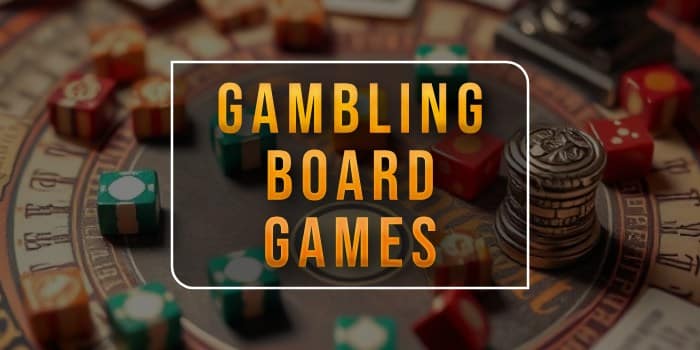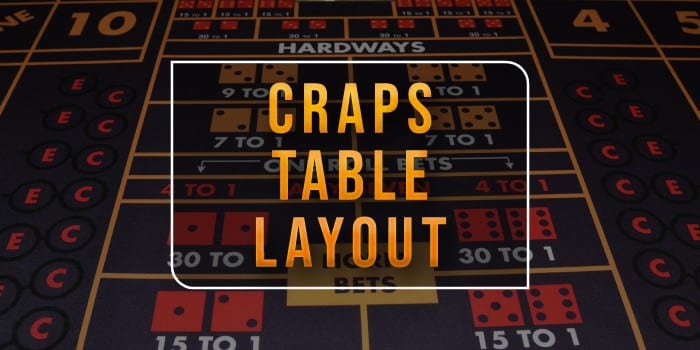- Casino
- By State
- Alabama
- Alaska
- Arizona
- Arkansas
- California
- Colorado
- Connecticut
- Delaware
- Georgia
- Florida
- Hawaii
- Idaho
- Illinois
- Indiana
- Iowa
- Kansas
- Kentucky
- Louisiana
- Maine
- Massachusetts
- Maryland
- Michigan
- Minnesota
- Mississippi
- Missouri
- Montana
- Nebraska
- Nevada
- New Hampshire
- New Jersey
- New Mexico
- New York
- North Carolina
- North Dakota
- Ohio
- Oklahoma
- Oregon
- Pennsylvania
- Rhode Island
- South Carolina
- South Dakota
- Tennessee
- Texas
- Utah
- Vermont
- Virginia
- Washington
- West Virginia
- Wisconsin
- Wyoming
- By State
- Slots
- Poker
- Sports
- Esports
- Home
- Why Is Gambling Illegal in Countries Around the World
Why Is Gambling Illegal in Countries Around the World

Gambling is still illegal in some countries around the world and this begs the question of why. To find out why is gambling illegal in countries around the world, we need to focus on the underlying reasons that often have to do with morality or religion. Some cultures look upon gambling as an outright sin or even a crime while others are more concerned about the socioeconomic ramifications gambling can bring with it.
These ramifications include underage gambling, developing a problem gambling behavior, or even ending one’s own life because of racking up gambling debt. Some of these issues are, in fact, the hot topics of the contemporary legal gambling industry, which continues to strive to hit a balance between sustainability and player safety. Despite that, some countries have decided that the only way to avoid the loss of human life or the decay of their societal moral is to make gambling illegal.
Why Is Gambling Illegal in the First Place?
In countries where gambling is illegal, laws have specifically outlawed the activity for different reasons. Usually, it is considered sinful, although no religion explicitly states that gambling is a sin. But why is gambling illegal if it’s not really a sin according to religion?
Well, according to countries that have outlawed gambling as a crime, there is an implied morality to consider and gambling clearly goes against the grain of that code of conduct.
Most modern societies, however, agree that the outright ban on gambling is a retroactive approach that doesn’t achieve the desired results, which is to protect the individuals who are susceptible to gambling harm or simply want to participate.
Banning gambling is also the result of a lack of a framework that can guarantee the safety of the individual. However, one popular argument is that no matter whether gambling is illegal or not, people will continue to find ways to gamble.
When patrons go to illegal gambling operators they are at an even bigger risk to suffer gambling-related harm or lose their money, or become indebted to criminal organizations, which defeats the original purpose of the authorities making gambling illegal.
Why Are Some People Concerned about Gambling?
There are certain safety concerns even in regulated jurisdictions. Although gambling is not illegal in such markets, activists may often present arguments about why it should be. Generally, people prefer to properly tax and regulate the industry than to ban gambling, but in certain cases, people may go as far as demanding the prohibition of some gambling offerings or verticals.
Anti-gambling activism oftentimes stems from people who have been impacted by problem gambling. Some of these are former problem gamblers, others are relatives of addicts and, in some cases, people have been impacted by gambling-related crime or suicide.
Such issues are oftentimes a part of the reason why gambling is illegal in certain countries or regions. In addition, the listed problems can be the reason why certain regions where gambling is not illegal opt to introduce restrictive regulations.
Underage gambling is also a relevant topic that is often talked about nowadays, especially with the rising popularity of loot boxes in video games. Some label the latter example as a form of gambling that is targeted toward minors and should therefore be banned.
Is Gambling Illegal Where You Live?
Another question on the minds of most people who wish to participate in any form of gambling is if it is illegal to gamble at home. That depends on the jurisdiction you are based in and also the form of gambling you wish to participate in. Different countries have their own laws for different kinds of gambling activities, including:
- Lotteries
- Sports betting
- Casinos
- Bingo
These activities could take place online, at a bookmaker, casino, or any other venue allocated for the purpose of carrying out gambling operations. Either way, verifying if you are legally allowed to gamble and whether the activity is considered a criminal offense is very easy and requires just a moment’s research work.
While many countries may have not passed laws to make gambling legal, in most, it’s not illegal for you to gamble even if there are no licensed websites in your country. The downside here is that you will be trusting offshore websites that have no obligation to fulfill outstanding payments to you. In addition, such unregulated operators are rarely bound by the player safety standards and regulations enforced on licensed gaming companies in regulated markets, so vigilance and self-moderation ought to be exercised.
There are offshore brands that have established a reputation, however, and which you can trust. It’s important to be able to note the difference between offshore gambling websites and illegal gambling websites, though, as they are not the same. Therefore, quick research may be the difference between playing with an acclaimed offshore operator and a shady black market company.
Where Is Gambling Illegal?
Currently, there are only a few countries where gambling is fully illegal and specifically, outright banned to the point where you cannot participate in any form of gambling and if you did so, you would face criminal prosecution. Why is gambling a crime in those jurisdictions? Once again, it has to do with the societal perception of the activity as degrading. These jurisdictions and countries include:
- Cyprus
- North Korea
- United Arab Emirates
- Singapore, Brunei
- Cambodia
Generally, you’d do best to familiarize yourself with local laws before participating in gambling activities, lest you find out you have gambled illegally.
More countries include the Cayman Islands, Afghanistan, Indonesia, Algeria, Vatican City, and Pakistan. These countries are bound to transition towards legalizing the activity one day if not only for the added tax value they could reap if they legalize gambling, which is going to happen whether the state sanctions it officially or not. Some countries like China and Japan have a generally gung-ho approach towards gambling, but they have been easing it up as of late.
Gambling is actually a big part of Japan’s culture, as some of the best gambling animes out there attest. Specifically, gambling was seen as a way to progress upward in society in the years after the war, and even more interestingly, in Japanese culture, being a good cheat is actually an admired quality.
Other than anime, China and Japan also have tons of legal games and forms of entertainment where luck plays a part, notably the so-called gacha games. Inspired by the old bubble-gum machines, such games distribute characters and items at random, adding a degree of thrill to each draw. Some of these titles such as Genshin Impact, Azur Lane, and Fate/Grand Order, are a global phenomenon and are played by millions of people around the world. Luckily, such games do not constitute illegal gambling in Japan or in China.
Is Gambling a Crime Even in Legal Markets?
Yes, gambling can be a crime even in markets where the activity has been legalized. While legalizing gambling is a great step towards accumulating additional revenue for the state coffers, the incidence of illegal gambling doesn’t stop there. Many individuals and often organized crime groups decide to use gambling as a means of laundering money or transferring criminal proceedings.
In other words, just because gambling is legal in your jurisdiction doesn’t mean that there aren’t people who are systematically trying to break the law by running illicit operations. However, this is also when gambling becomes a crime.
Running illegal gambling venues means that the guilty party is punishable by law and the size and severity of the punishment depend on the level of transgression.
Will Gambling Remain Illegal in Places?
While it’s unlikely for gambling to always be illegal even in countries where it’s greatly restricted, such as China, there is no way to know with certainty when it would be allowed to scale. China prefers to only allow citizens to participate in lotteries. Chinese nationals are free to travel to neighboring gambling hubs, and most often Macau, where they can play as much as they want to.
The United States is one of the latest countries where gambling was considered illegal until recently, but the suspension of several restrictive federal laws has opened the floodgates, and gambling, such as sports betting, is no longer considered illegal in the United States.
Ultimately, the fate of gambling laws depends on the social, cultural, and political views currently prevailing in any given country. Theoretically, jurisdictions that currently allow games of chance may outlaw gambling or even criminalize it at some point in the future. However, the current global tendencies show a general warming up towards the idea of a regulated gambling industry, as statistics show that a healthy legal gambling ecosystem has many more benefits than a faulty regime than prohibits gambling.
Related Topics:
Luke is a media graduate who is looking to build upon his experiences from his strong love of sports betting and casino games which started during his first year of college. His fresh mindset always brings new content ideas to the team and his editorial skills will continue to grow with the help of the upper management team at Gambling News.
Must Read
Legal
November 17, 2019
Philippine Gaming Operators Involved in Prostitution Ring
Casino
October 7, 2019
Haven Gaming to Build Danville Casino in IL
Casino
October 6, 2019
MGM To Pay $735M as Part of Settlement for Las Vegas Shooting
Casino
September 28, 2019
Swiss Casinos Group Partners with Playtech
Sports
September 27, 2019
Mobile Sports Betting Finally Coming to Indiana
More Articles















December 3, 2024
Boxers Who Started Late and Became Champions

November 19, 2024
Best Gambling Board Games

October 25, 2024
Top 20 Books About Gambling

October 23, 2024
Craps Table Layout

Casino
October 21, 2024
Megabucks Slot Machines

September 30, 2024
What Soccer Positions Are There and How They Work

September 27, 2024
The Best Arcades in Las Vegas

September 26, 2024
When to Double Down in Blackjack

September 24, 2024
Best Offshore Sportsbooks and Betting Sites

September 22, 2024
League of Legends World Championship: Odds, Tips & Predictions

September 19, 2024
How to Become Professional Gambler

September 17, 2024
What Is a Pachinko Game Machine?

September 16, 2024
Michael Jordan Gambling: The Good, the Bad, and the Ugly

September 13, 2024
Best Odds in Vegas – Which Game Is Superior?



